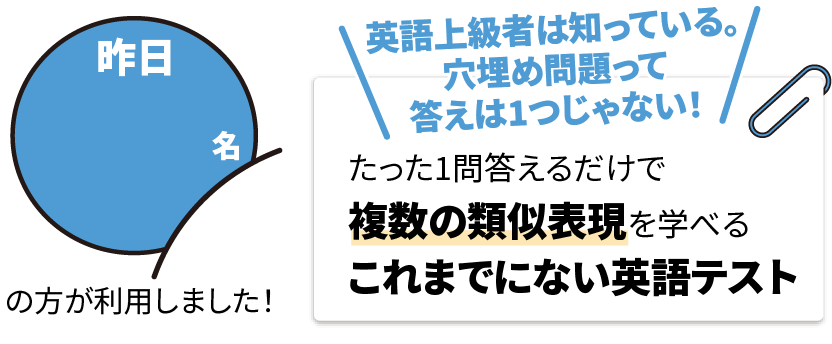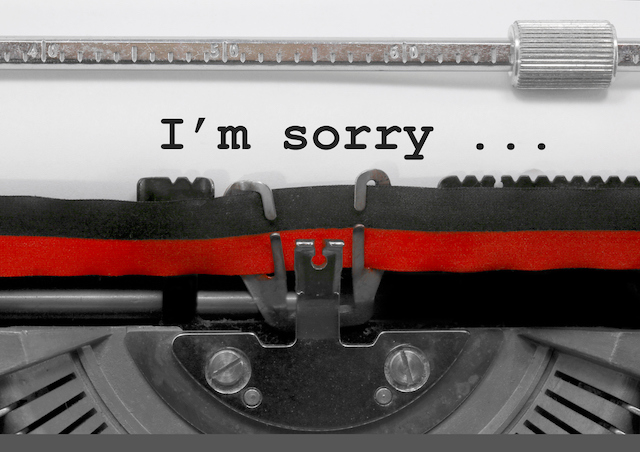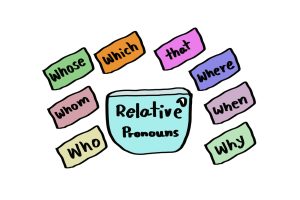Hi, guys! This is Beth! How’s everyone doing?
Have you heard English speakers say “I’m sorry” and wondered what they were “sorry” about?
You wonder “what did they do”?
Why are they apologizing?
Chances are they aren’t apologizing at all!
They might even be trying to encourage you! I myself have seen “confused faces” at times, so let me introduce a number of ways the words “I’m sorry” can be used.
“I’m sorry.”の使い方①ーごめんなさい。
We will start with the most commonly understood use.
We are actually apologizing for something we(or someone else)did! When we are wrong or do wrong, we say “I’m sorry”. If the situation is formal, you should up your wording to “please accept my apologies”. “I’m sorry” won’t cut it!
“I’m sorry.”の使い方②ーダメです。ムリです。
You might be reading this and saying “what?”
This use of “I’m sorry” will probably be easier to explain with examples! Ok!
Example 1: you ask me to take you somewhere in my car…..I say “I’m sorry”! The ごめんね is hidden here! I am saying “I can’t”! I am trying to say it in a softer, kinder manner!
Example 2: you ask to borrow my car…..I say “I’m sorry”! Here again, I am trying to be softer with my answer! I am, however, saying “no”!
“I’m sorry.”の使い方③ー大変でしたね。残念でしたね。
Yes, we can use “I’m sorry” here, too!
If someone tells me about a rough, difficult time they had/are having, I often say “I’m sorry”.
It might be an illness, a tiresome move, a rough day at work, etc…..I will most likely say “I’m sorry” in each case. I am in actuality feeling sorry that they had to experience those things! I am saying 大変でしたね。
In other cases, someone might tell me they failed a test. I will probably again say “I’m sorry”.
I am saying that I am sorry that happened(you failed that test)!
If you let me know that you did not win the lottery, I will be sorry! This time it will be because something did not happen(you didn’t win)!
Yes, you could say “that’s too bad” in these cases! I, however, will usually say “I’m sorry”! In other words, 残念でしたね。
“I’m sorry.”の使い方④ーお悔み申し上げます。
This may surprise some people.
If formal(you don’t know the family well, the family of a boss or highly-respected person, etc.), I would probably use the words “my deepest condolences”. However, the most often used words when there has been a loss in the family are
“I am so sorry for your loss”.
We are putting ourselves in their shoes. We are “sorry”(disappointed and sad) they have lost a loved one. The “I’m sorry” here is deep and heart-felt.
I can NOT cover all of the uses of “I’m sorry” here! I do hope, though, that I have helped you see some of the many possibilities.


Hi! My name is Beth !! I have lived in Japan for a really long time!! I am fluent in both English and Japanese, but with age (hahaha) am finding myself sometimes digging for words in both languages !! I love anything that is not housework!! Teaching (helping others learn) is my favorite activity!?! I hope to make many new friends !! Feel free to drop me a “howdy!
座右の銘は、”God first! People next! Everything else after that!”
※このブログでは英語学習に役立つ情報アドバイスを提供していますが、本ブログで提供された情報及びアドバイスによって起きた問題に関しては一切、当方やライターに責任や義務は発生しません。
※ここでの情報や助言を参考に英文を書いたり下した判断は、すべて読者の責任において行ってください。ここに掲載されている記事内の主張等は、個人の見解であり当社の意見を代弁・代表するものではありません。







 (14 イイネ!が押されています)
(14 イイネ!が押されています)



























I sent an email to my colleagues saying that I am quitting my job to work for another company. He answered: I am sorry to read the news. He also said that he enjoyed working with me. What does this sorry mean?
Yuri様、
お返事が遅れて失礼いたしました。
Beth先生に代わって回答させていただきます。
同僚の方のメッセージ、”I am sorry to read the news”は、
「このニュースを読んで残念に思う。」という意味です。
“I’m sorry.”の使い方③の意味で使われます。
今後も役に立つ情報をお届けしていきますので、どうぞよろしくお願いいたします。